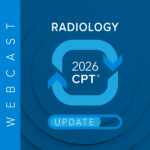The advent of revised regulations for administrative law judge (ALJ) hearings of Medicare appeals includes a new request for ALJ hearing or review of dismissal form.
Because the new form — governed by 42 C.F.R. § 405.1014 — provides a logical flow of information for you and the public servants handling your appeal, you should use the form for every new appeal you file. The form, Office of Medicare Hearings and Appeals No. OMHA-100, is available online at https://www.hhs.gov/sites/default/files/OMHA-100-Request-for-Hearing-or-Review-of-Dismissal.pdf.
Section 1 identifies the part of Medicare under which you are appealing. In Section 2, you are asked to tell OMHA who you are and outline your role in the case. Section 2 also helps OMHA expedite individual beneficiaries’ appeals, which OMHA still expects to decide within 90 days of filing.
Pursuant to 42 C.F.R. § 405.1014(a)(1)(i) through –(iii), all appellants must provide a telephone number in Section 3 or 4 of the form. This includes individual beneficiaries.
Representatives must complete Section 4 and attach a CMS-1696 appointment of representative form or other appointment of representative documentation if they answered “no” to the last question in Section 4, asking whether they previously submitted and detailing the appointment of a representative. Privacy rules require an appointment of representative if you want OMHA to talk with you about a case you file for someone else.
In Section 5, you must provide the Medicare appeal or qualified independent contractor (QIC) number assigned to the QIC reconsideration or notice you are appealing (see 42 C.F.R. § 405.1014(a)(1)(iv). Why do you have to provide the QIC number? OMHA needs it to request the case file from the QIC.
42 C.F.R. § 405.1014(a)(1)(v) now requires appellants to specify the dates of service (DOS) of the claims they are appealing. Because beneficiaries may have been hospitalized more than once, in home health, therapy, or hospice for multiple periods, or received more than one shipment of supplies or durable medical equipment (DME), providing dates of service and the QIC number ensures that the ALJ or attorney adjudicator will review and decide the correct claims.
Healthcare professionals asking for an expedited hearing arising out of a Part D drug denial must explain in Section 6 why waiting the standard 90 days for a decision may jeopardize the beneficiary’s health, life, or ability to regain maximum function.
In Section 7, explain why you disagree with the denial or dismissal. It’s acceptable to write: “the record supports payment for the services appellant provided the beneficiary on (DOS); please refer to attached letter (or proposed decision).”
If you are submitting new evidence and are a provider or supplier (or a provider or supplier representing a beneficiary), you must indicate that in Section 8 – and explain why you didn’t previously submit the evidence before the QIC’s reconsideration decision, per 42 C.F.R. § 405.1018(d) and 42 C.F.R. § 405.1028(d). You must submit that “good cause” statement with the request for a hearing, or if you submit the evidence later, with the evidence. You cannot wait until the hearing to submit your good cause statement – the ALJ or attorney adjudicator cannot consider it if you wait.
In Section 9, you advise if you are aggregating claims to meet the amount in controversy requirement, waiving an oral hearing and requesting an “on-the-record” decision issued without a hearing, or filing a statistical sampling claim. Waiving an oral hearing and requesting an on the record means your case may be assigned to an attorney adjudicator, who is a licensed attorney knowledgeable about Medicare coverage and payment policy, per 42 C.F.R. § 405.902, 42 C.F.R. § 405.1036(b)(2), and 42 C.F.R. § 423.2036(b)(2).
42 C.F.R. § 405.1014(d)(1) and –(2) – and the new request for hearing form – require you to recite to whom and when you mailed a copy of your request for hearing, including the recipient(s) name, mailing address, city, state, and ZIP code. Your mailing must also include a copy of your position paper, brief, or proposed decision. Providing information about who you served with copies, and when, allows your hearing request to be placed in line for processing.
Hearing requests that do not include service of copy information will be further delayed while OMHA asks for that information, typically with a notice to correct deficiency. Failure to correct the deficiency in the allowed time will result in dismissal of the request for hearing, per 42 C.F.R. § 405.1014(d)(3), 42 C.F.R. § 405.1052(a)(7), and 42 C.F.R. § 405.1052(b)(4). Dismissal for failing to document providing a copy does not apply to individual beneficiaries.
Send your request for hearing to the entity specified in the reconsideration decision. If the reconsideration denial or other order directs you to send it to OMHA, Section 11 provides addresses and mail stops.
Using the new form ensures that you provide all the information you need to perfect your appeal. Using the form helps the intake clerks in centralized docketing and eventual ALJ legal assistants quickly input your appeal information. Help yourself, and help OMHA help you. Use the form.












